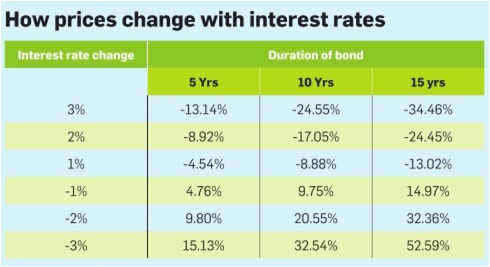Content

This basic accounting equation is the core of the double-entry bookkeeping system of accounting. The overall impact of the duality concept is that each transaction has an equal impact on assets and liabilities and the total assets are always equal to total liabilities. Any financial transaction expands or reduces balances in one or more account/s. The changes in any particular asset, liability or equity item are recorded time to time in the general ledger which are called accounts. For example, Asset accounts have sub-accounts like current assets and fixed assets, Liability accounts have Current Liabilities and Long-term Liabilities and so on.
Not only can you invoice clients through these programs, but you can also conduct bookkeeping, payroll, and other accounting tasks. These charge fees, though, so consider that when making your decision. Many business expenses are tax deductions — expenses that deduct from what you owe in taxes. For example, if I spent $500 to fly to and attend a marketing conference, that’s $500 less I owe in taxes for that year.
Review employee timesheets.
In its most Basic accounting ideas sense, accounting describes the process of tracking an individual or company’s monetary transactions. Accountants record and analyze these transactions to generate an overall picture of their employer’s financial health. Overhead (O/H) costs describe expenses necessary to sustain business operations that do not directly contribute to a company’s products or services. Examples include rent, marketing and advertising costs, insurance, and administrative costs. At a basic level, equity describes the amount of money that would remain if a business sold all its assets and paid off all its debts. It therefore defines the stake in a company collectively held by its owner and any investors.The term “owner’s equity” covers the stake belonging to the owner of a privately held company.
Accounting for Startups: Tips to Get Your Startup on Track – StartupGuys.net
Accounting for Startups: Tips to Get Your Startup on Track.
Posted: Mon, 30 Jan 2023 08:00:00 GMT [source]
These are financial obligations or debts a business entity has to pay some time in future, which results in the outflow of resources. Every business entity needs to borrow money or purchase goods on credit at one point in time. These are the resources of a business entity that can be expressed in monetary terms. Assets comprise items of economic value that are important for running a business. These items are represented on the assets side of the balance sheet of a business entity in order of their liquidity. For example, sale of goods, payment of expenses or receipt of income. Events that cannot be expressed in terms of money are not recorded in the books of accounts; for example, goodwill, loyalty and honesty of employees.
Run » Finance
It’s another important account term that refers to the day-to-day recording, categorizing, and reconciling of transactions. Basically, bookkeeping keeps you from spending and making money without tracking it. SG&A expenses are incurred as daily business ops and are included in income statements (under “expenses”). OPEX aren’t included in COGS — they’re the costs involved in the production of goods and services such as rent, utilities, insurance, inventory costs, salaries or wages, property taxes, or business travel. You might start your business accounting recording every transaction. But as your business grows or circumstances change, you may want to revisit the way you record and report small transactions. If you limit your accounting to material transactions you can save time for your business.
What are 4 Fundamentals of accounts?
- Accounting Process.
- Reconciliation Statement.
- Accounting for Depreciation.
- Preparing Final Accounts.
- Accounting for Private Transactions.
As the formula indicates, https://personal-accounting.org/ go on the left side of the equation and are debited. In the same way, assets go on the left side of your general ledger. For example, if you receive cash, your accounting software would debit your cash account behind the scenes. Financial statements are prepared on the assumption that the business will remain in operation in future periods. Under this assumption, revenue and expense recognition may be deferred to a future period, when the company is still operating. Otherwise, all expense recognition in particular would be accelerated into the current period. Revenue is only recognized when there is a reasonable certainty that it will be realized, whereas expenses are recognized sooner, when there is a reasonable possibility that they will be incurred.
Accrual Concept
This way, nothing slips through the cracks or becomes a problem that’s too large to bounce back from. Independent contractors include freelancers, consultants, and other outsourced experts that aren’t formally employed by your business. With contractors, you don’t pay benefits or withhold taxes on their behalf.
The trade is able of running everyday operations and has capital and crude materials to do so. These annual checks mainly cater toward regulatory and compliance requirements, along with reporting of performance to shareholders. Creating budgets for various expenses, activities and projects isn’t hard, but sticking to these budgets can be difficult.
The purpose of the objectivity concept is that it does not let the firm’s management and accountants’ opinions impact the financial statements and provide a false image. The concept can be helpful for an organization in creation of its goodwill. Besides, it warns the companies about the penalties if there is any sort of misinterpretation in the financial statements. The money measurement concept says that a business should record only those transactions which can be expressed in monetary terms. It means that transactions like purchase and sale of goods, rent payment, expenses payment, earning of revenue, etc., will be recorded in the books of accounts of the firm.
- Financial accounting is the process of recording, summarizing and reporting the myriad of a company’s transactions to provide an accurate picture of its financial position.
- Whether you provide freelance services, set up shop at a local farmer’s market, or run a global e-commerce business, you need an easy way to collect what you’ve earned.
- Essentially, debits and credits track where the money in your business is coming from, and where it’s going.
- It’s better for cash flow purposes to overestimate your expenses rather than your income.
- It’s full of useful tips on why doing your own books is important, how you can get started, the best way to maintain it, what to look for in software plus so much more.
